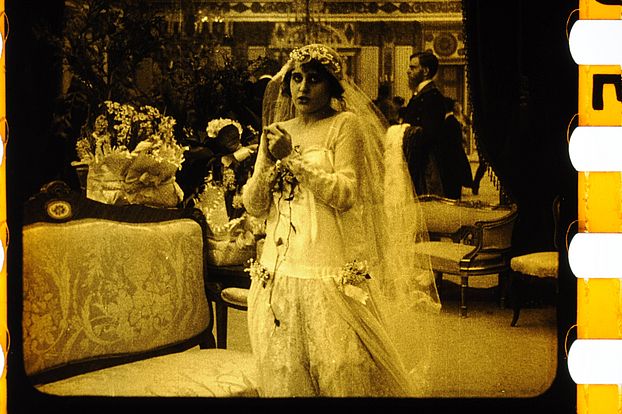Januar, 2022
11Jan(Jan 11)0:0030(Jan 30)0:00Call for paper: The ‘New Woman’ in Early Russian Cinema

Details
International Conference | September 1-3, 2022, University of Basel, Switzerland Keynote speakers: Rachel Morley (University College London) Peter Bagrov (George Eastman Museum, USA) Scholars from various disciplines are invited to submit their proposals. Please
Details
International Conference | September 1-3, 2022, University of Basel, Switzerland
Keynote speakers:
- Rachel Morley (University College London)
- Peter Bagrov (George Eastman Museum, USA)
Scholars from various disciplines are invited to submit their proposals. Please submit your abstract (up to 350 words, including 5 references) in English together with a brief biographical statement (150 words) and contact details to Olga Derevyankina (fastidium@yandex.ru), Anna Kovalova (aokovalova@gmail.com), and Clea Wanner (clea.wanner@unibas.ch) by January 31, 2022. Notification of acceptance will be sent by February 28, 2022. The working language of the conference is English. Organizers:
- Olga Derevyankina (Gosfilmofond of Russia, Moscow)
- Dr. Anna Kovalova
- Dr. des. Clea Wanner (University of Basel, Switzerland)
Please find more informations below:
Off-screen
In recent years, the review of female contribution in early cinema has become an important concern of international film studies. However, the role of women in the Russian film industry has not been thoroughly analyzed, even though the available, albeit scarce, sources indicate a broad and significant involvement of female film professionals. At first, women became actively involved in film production primarily as editors. Then, they started working as screenwriters, producers, assistants, or film directors. Furthermore, women were also deeply connected with the motion picture theatre business through different professions such as pianists, cinema managers, and owners. Critically examining aspects of inclusion and exclusion of women in early cinema as well as specific networks between female cinema professionals, our goal is not the repetition of the male-centric concept of ‘author-greatness’ through a female perspective, but rather to shed light on gaps concerning the involvement of women in the Russian film industry.
On-Screen
One of the typical early Russian cinema plots brilliantly described by Neia Zorkaia centers around the fate of a female protagonist. In most cases, it is a variation of the Poor Liza story: in this famous sentimental novella written by Nikolai Karamzin in 1792, a young peasant woman commits suicide after being unable to get over her unrequited love for a handsome nobleman. In many pre-revolutionary films, women are thus victims of their seducers and unfortunate circumstances. In the mid-1910s, however, an alternative plot about a ‘new woman’ becomes popular. This ‘woman of tomorrow’ is financially independent, pursues a progressive profession and artistic self-realization, and, lastly, plays an active part in her relationship with men. Since a number of excellent academic works on the subject already exists, the conference aims to revisit it from a broader perspective. We are interested in studies that specify the cinematic representation of women by integrating unknown sources and new methods.
Beyond the categorical division of ‘off- and on-screen,’ the conference will also focus on the interrelation of cinema and its female spectators. The Russian film melodrama specifically addresses an audience of women. As the main target group, female viewers and their preferences influenced film production, while they were simultaneously strongly affected by it. The evolution of the cinema heroine was an influential factor in social life, as films which circulated in the 1910s culture significantly shaped women’s imagination, behavior, and world views.
Topics relevant to the conference include (but are not limited to):
– Women as editors and hand colorists in early Russian cinema
– Early female screenwriting in Russia
– Women as film directors and assistant directors – Women as film producers in the pre-revolutionary Russia
– The role of women in the motion picture theatre industry
– Women in early cinema journalism and film critics
– Archives and existing sources on female film professionals, their accessibility, and representation
– Screening gender: gender constructions, stereotypes (and their subversion) in prerevolutionary cinema
– Early Russian cinema as ‘counter cinema’?
– Representation of the female body and its aesthetic strategies
– Concepts of the ‘new woman’ at the crossroad of film and other discursive fields
– The female cinema viewer: expectations, preferences, and impact
– Woman as model of mass consumption
– Interconnections between female cinema audience and the idea of ‘feminization’ of mass culture
To investigate these questions, scholars from various disciplines are invited to submit their proposals.
Please submit your abstract (up to 350 words, including 5 references) in English together with a brief biographical statement (150 words) and contact details to Olga Derevyankina (fastidium@yandex.ru), Anna Kovalova (aokovalova@gmail.com), and Clea Wanner (clea.wanner@unibas.ch) by January 31, 2022.
Notification of acceptance will be sent by February 28, 2022. The working language of the conference is English.
Organizers: • Olga Derevyankina (Gosfilmofond of Russia, Moscow) • Dr. Anna Kovalova • Dr. des. Clea Wanner (University of Basel, Switzerland)
Termin
11 (Dienstag) 0:00 - 30 (Sonntag) 0:00
VERANSTALTER
Universität BaselSlavisches Seminar
